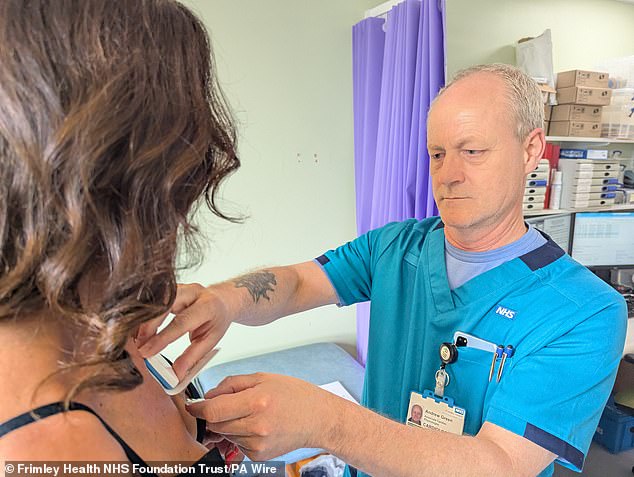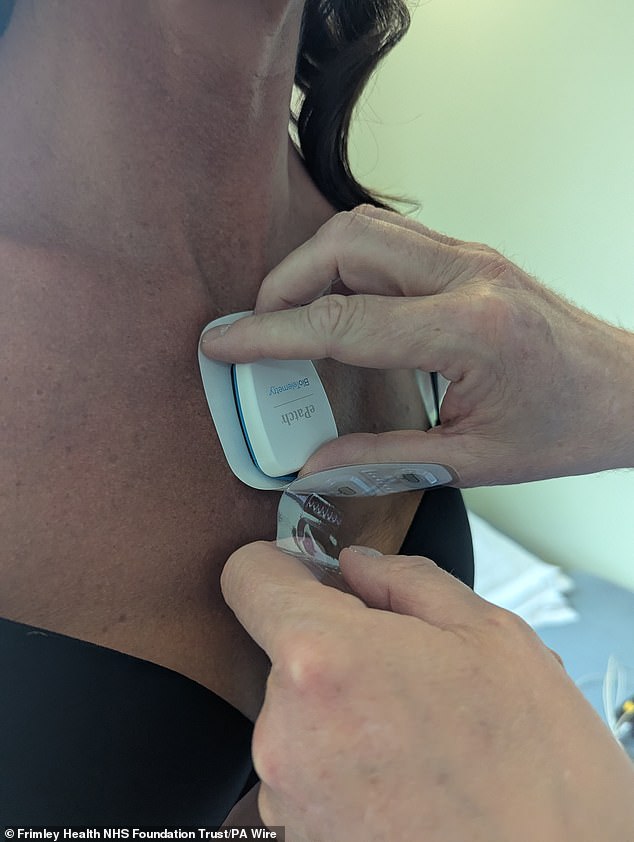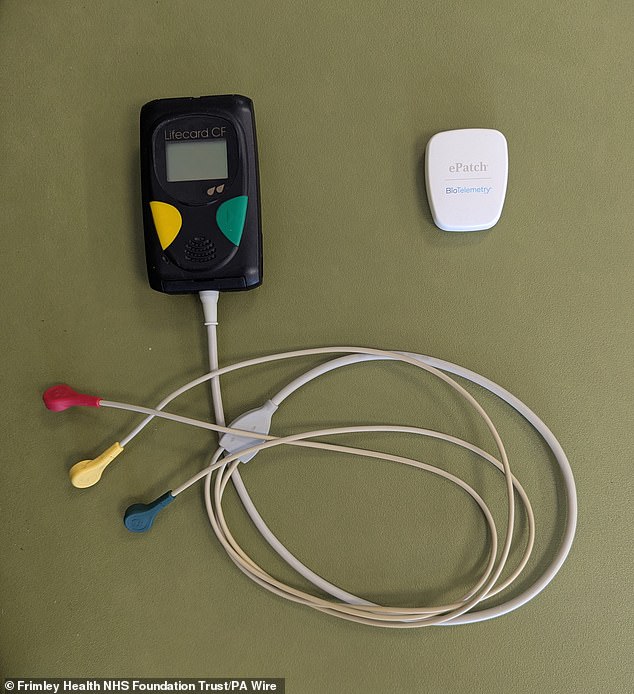DIY heart monitors that stick to the skin to detect heart rhythm problems are starting to be brought in by the NHS.
The small patches, which patients wear for a few days, can be posted out for them to attach at home.
They represent a huge leap forward from traditional devices, which require set-up by a trained physiologist and involve numerous wires and monitors.
And they could be used to investigate some of the most common heart problems including atrial fibrillation – a condition where the heart beats irregularly – tachycardia, when the heart beats too fast, and heart blocks.
Frimley Health NHS Foundation Trust, in Surrey, is the first hospital in the country to roll out the device, with hopes that it will soon be used across other NHS trusts.
Dr Iain Sim, a consultant cardiac electrophysiologist at Frimley Health, said: ‘Atrial fibrillation is a really important and common condition that we pick up with these devices, and we’re increasingly looking at whether we can use them to help detect AF that’s not symptomatic, and whether people are at increased risk of stroke that we don’t know about.’
The Trust said it will still use traditional devices, known as Holter monitors, on some patients who are in hospital. But many outpatients will be able to access the new ePatch, which is made by Philips, to use at home.
After the monitor is worn for a few days patients can post it back, which will cut out the need for appointments to fit and remove the equipment. The information from the monitor is then collated using an artificial intelligence tool, Cardiologs, which produces a report which is then assessed by either a physiologist or a doctor.

DIY heart monitors that stick to the skin to detect heart rhythm problems are starting to be brought in by the NHS . The small patches, which patients wear for a few days, can be posted out for them to attach at home

They represent a huge leap forward from traditional devices, which require set-up by a trained physiologist and involve numerous wires and monitors. And they could be used to investigate some of the most common heart problems including atrial fibrillation

Frimley Health NHS Foundation Trust, in Surrey, is the first hospital in the country to roll out the device (pictured), with hopes that it will soon be used across other NHS trusts. The Trust said it will still use traditional devices, known as Holter monitors, on some patients who are in hospital. But many outpatients will be able to access the new ePatch to use at home
Dr Sim added: ‘The benefits of it are that it is smaller and more convenient, rather than different wires all over the place. We are able to put them on faster and we’re able to reduce our turnaround times for reports and to get results back to patients faster.’
He said traditional Holter monitors are attached by trained physiologists but there was a shortage of such qualified staff.
These devices involve attaching electrodes to a patient’s chest, attached by wires to a small, portable device.
Wearing the monitors can sometimes be uncomfortable, especially at night, and it can be hard to keep the electrodes stuck to the skin.
Suzanne Jordan, from Frimley Health, said: ‘It’s been really positive – staff and patients really like it.’
She said her team has doubled their productivity since introducing the patches, as they are able to manage patients more quickly.












